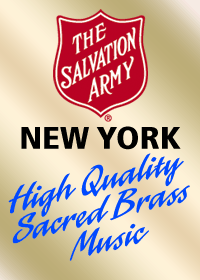Let's debate with James Gourlay

As the international brass band contest season kicks off with the French National, Butlin’s, Brass at the Guild, the Norwegian National and the British Regional Championships, international tubist and River City Brass Artistic Director, James Gourly, ponders what it’s all about...
BAND CONTESTS - WHY BOTHER?
We all know the drill: Set the alarm for an early rise - check; The cooked breakfast - I only have it on contest days - check; I’m wearing my lucky underwear - check. Then it’s off to pre-contest rehearsal. The conductor chooses a hymn tune - the same one as on every contest day and usually number 21 in the Red Hymn Book. Why that one and only on contest days? The band starts up and sounds terrible, or at least you think it does at first. Things start to gel however, and the band sounds glorious again. Into the test-piece and the conductor has done their homework, having isolated the ‘dodgy’ bits - those parts of the piece that have never gone quite right, or where someone generally is a bit shaky. If they go well you think: ‘We have a chance’. Fingers crossed.
Off on the bus now or, if it’s an overnight stay, check out the hotel and go through the checklist of things you’ll need for the day: Music, instrument, uniform and mouthpiece. Mouthpiece? Where is it? Did I leave it in the rehearsal room? And what about the draw? If we’re drawn number 1, we’ve no chance! Phew, we’ve drawn number 8. That’s an omen because third cornet, Jim, had a dream last night that we were number 8 and we won!
Let’s face it, band contests can be very stressful and most folks have at least the flutters or worse weeks before the event, but then others relish the ‘buzz’ and excitement.
I’ve been contesting for nearly 50 years now, having started at the age of ten with the Buckhaven and District Miners Band, conducted by the then legendary bandmaster, Archie Smith. We were in Section 3 I think, having been recently promoted after our ‘incredible’ performance of Eric Ball’s Indian Summer, which by the way is still a well-crafted, tuneful piece - very suitable for a young or a Section 4 band. I can remember Indian Summer really well as it was the first ‘really hard’ Eb bass part that I had ever seen and I practised it so diligently that it has stuck in the memory. The first band contest I actually remember was at the CISWO Miner’s Gala in Edinburgh, around 1967. There were three parts to the contest: march, hymn tune and own-choice. Before the contesting part of the event, all the bands (brass and bagpipes) had to march down the Royal Mile and enter the gates of Holyrood Palace. The noise was unbelievable: Highland Laddie competed with Slaidburn and there was a sharp turn to get to the Palace gates. Unfortunately, our bass trombone player (G trombone in those days) missed the turn, ‘oompahing’ straight ahead for about 20 yards before the band secretary brought him back into the fold.
I still have fond memories of the G trombone being played with gusto. This instrument, above all others it seemed, could only be played with gusto. In the wrong or, who knows, perhaps even in the right hands it made a tone akin to the offspring of a musical saw (basso edition) crossed with delicate sound of tearing calico. (Now there’s a simile worthy of a famous brass band website!) Artists of the genre possessed a special technique, now relegated to that oblivion shared by corset makers and lamplighters, of throwing out the slide-handle to reach seventh position. I digress though! How did the band do at the contest? Well, it came third. Yes third and we celebrated
as if we had not only won, but as if East Fife Football Club had won the Scottish Cup too! You can’t beat that feeling!
Since those early days, I’ve been involved in a lot of band contests as a player, conductor and adjudicator. I conduct for a living now, working with professional ensembles, orchestras and choirs. My regular engagement is with River City Brass based in Pittsburgh, Pennsylvania. It’s a professional band with a full-time contract for the players, ‘admin’ staff and me. The players are members of the American Federation of Musicians and are paid for every rehearsal, recording and show. Basically if they play, the band pays. We only perform in concerts because we live from selling tickets. The shows are fun (and funny) and appeal to a non-brass playing audience. We don’t have a weekly rehearsal pattern like contesting bands do, but rehearse four times just before each monthly concert series, in which there are generally seven concerts. You’ll see, then, that our work is very different form the traditional brass band. Contesting would be out of the question for us, as the costs (remember every rehearsal is paid) would be way too high. So if I don’t need to do contesting anymore, I often ask myself why bother? Let’s look at some potential reasons from three perspectives; the player, the conductor and the adjudicator.
It’s some time since I played in a band contest. The last time was, I think, in 2007 when I played Bb Bass with...
To read Jame's full article, and much more, subscribe to BBW Digital here.





.gif)







